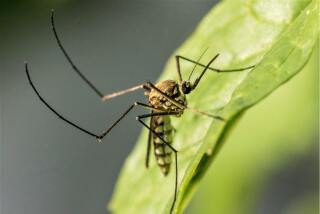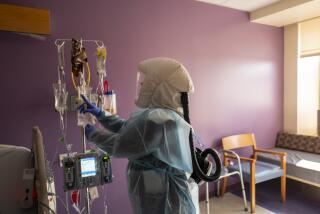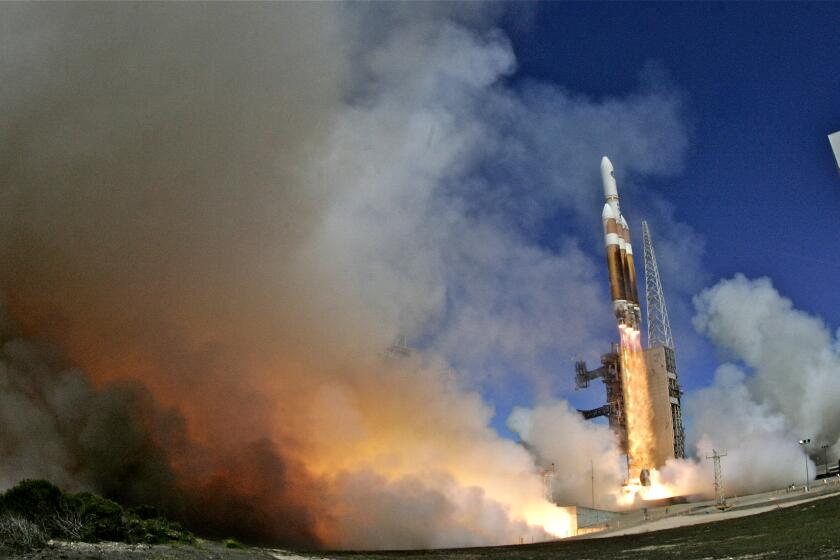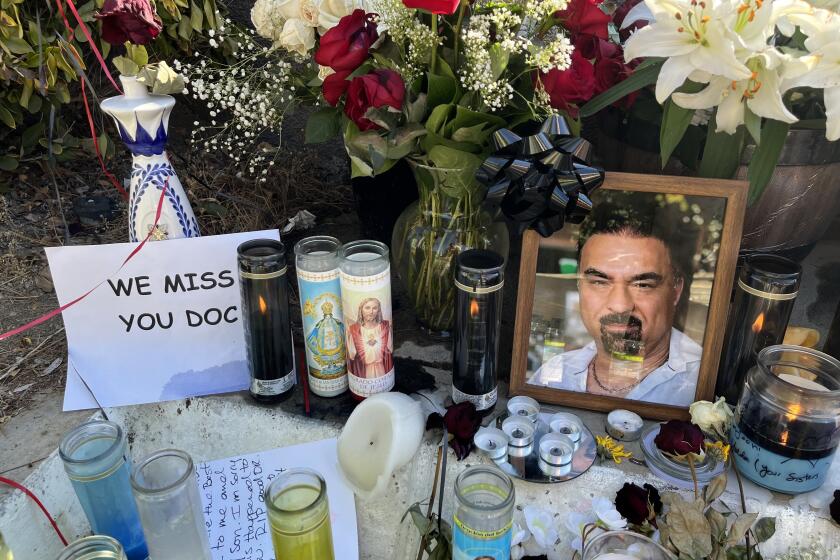Riverside County confirms first 2 flu-related deaths this season; L.A. County has reported 1 so far
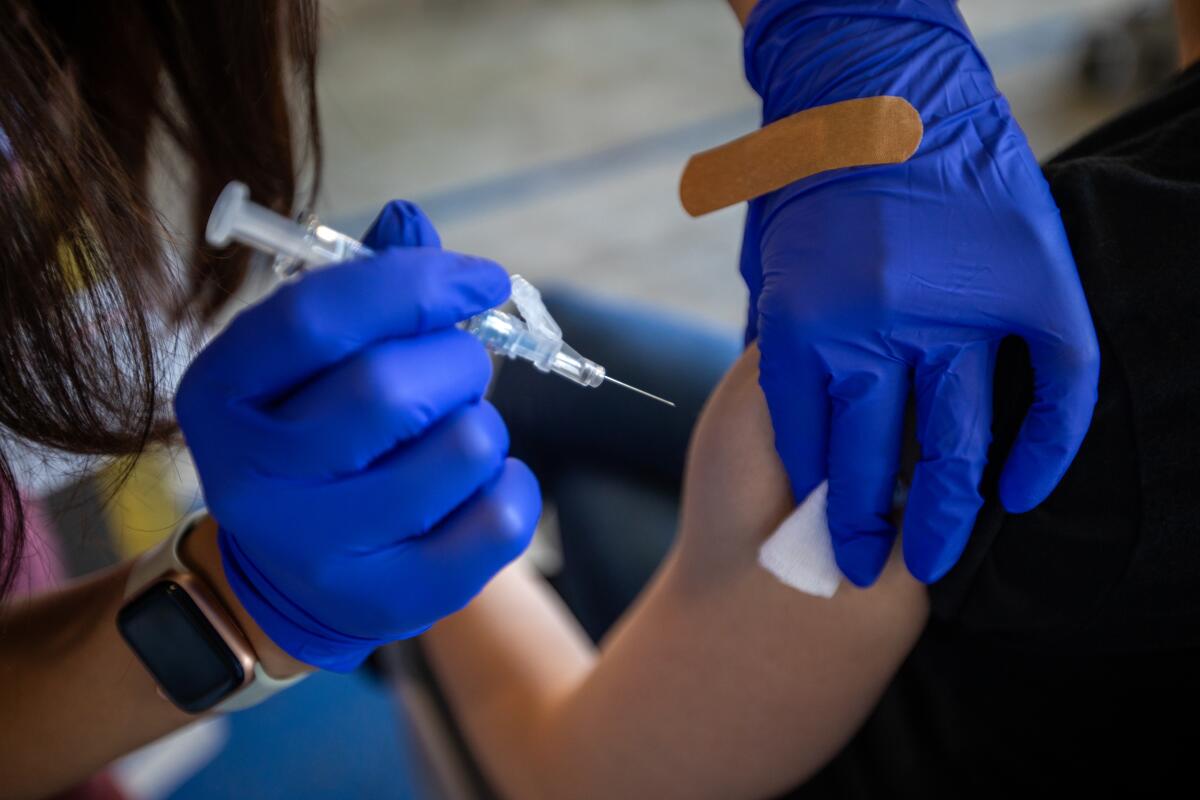
With flu season in full swing, Riverside County public health officials are urging residents to get their vaccines and to take other precautions against respiratory viruses after reporting the county’s first two flu-related deaths this winter.
The deaths include a 73-year-old man and a 79-year-old woman from mid- and western Riverside County, respectively. Both had underlying health issues and died at local hospitals, according to county officials. No further information was immediately provided.
Last month, Los Angeles County confirmed its first flu death of the season. The deceased was an elderly resident with multiple underlying conditions and had no record of influenza vaccination this season, according to county health officials.
According to Riverside County’s weekly influenza surveillance report, current influenza-like illnesses activity levels are moderate in the area. The county typically logs people aged 65 and older as the bulk of pneumonia and influenza deaths in the county with few occurring among those 24 and younger. Data collected between Nov. 19-25 show pneumonia contributed to the bulk of deaths, which were largely affected by other diseases such as COVID-19.
“These tragedies remind us that influenza can be serious, especially for those who have health issues or weakened immune systems,” Dr. Geoffrey Leung, public health officer for Riverside County, said in a statement. “There are simple steps that can be taken to protect ourselves. Most important of these is to get vaccinated. We recommend that everyone over 6 months of age receive the flu vaccine.”
Respiratory viruses such as the flu and COVID-19 spread year-round but are more common in the United States between October and March. The virus is spread through coughing and sneezing. Anyone is prone to catch the virus but elderly people, children and those with weakened immune systems are more at risk.
Health officials urge people to stay up-to-date on vaccines, remain at home if sick, consider wearing a face mask, cover a cough or sneeze and wash hands throughout the day.
More to Read
Sign up for Essential California
The most important California stories and recommendations in your inbox every morning.
You may occasionally receive promotional content from the Los Angeles Times.

